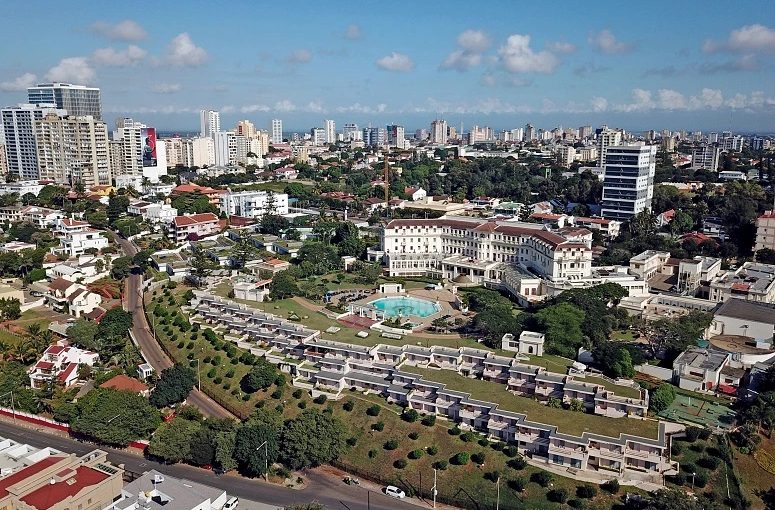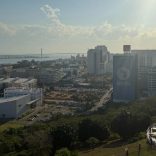Mozambique's potential in full force at Malawi International Trade Fair
Business conditions weaken again in January – Standard Bank Mozambique PMI

FILE - For illustration purposes only. [File photo: Lusa]
- Key findings
- Output and new orders fall for third month in a row
- Lower costs and weak demand lead to reduced selling prices
- Employment and purchases tick higher
The Standard Bank Mozambique PMI® signalled a further contraction in the private sector economy in January. Output levels and order book intakes dropped for the third month running, as protests continued to disrupt economic conditions.
However, the downturn was less severe compared to the end of last year, whilst expectations for future output improved. There were also renewed increases in staffing and purchases, helped by a further drop in input prices. Selling charges also decreased, notably to the greatest extent in three years.
The headline figure derived from the survey is the Purchasing Managers’ IndexTM (PMI). Readings above 50.0 signal an improvement in business conditions on the previous month, while readings below 50.0 show a deterioration.
At 47.5 in January, the headline index pointed to a solid deterioration in business conditions at the start of 2025. The index has been below the 50.0 mark for the past three months, although it rose from a 52-month low of 46.4 in December.
Mozambican firms in the survey panel widely commented on a sustained impact from political protests. January saw output and new orders decrease for the third month running, albeit to lesser degrees than in December. Some firms indicated that disruptions had eased, thereby boosting client numbers.
In another sign that the impact of protests on businesses was lessening, survey panellists reported fresh efforts to increase capacity. Total employment rose slightly in January, ending a two-month period of staff cuts. Similarly, after a marked decline in December, purchases of inputs grew for the first time in three months.
Logistics issues were also partly resolved, giving vendors greater flexibility with their deliveries. Although overall lead times continued to worsen, they did so only fractionally and at the slowest pace for three months. Consequently, inventories of inputs at private sector firms expanded at the quickest pace since August 2024.
With weak demand persisting, businesses processed a greater volume of existing orders at the start of the year. Backlogs of work dropped at the quickest rate in eight months.
Turning to prices, the latest survey data signalled a further decrease in output charges during January. Furthermore, the pace of discounting quickened from December and was the most marked in three years. Lower prices were linked to the twin effects of weak demand and falling costs.
On the latter, businesses reported a drop in input costs for the third consecutive month. According to panellists, subdued demand for raw materials due to the protests had brought down supplier fees. Purchase prices declined, albeit only modestly and at the slowest pace for three months. Wage costs also dropped after stabilising in December. Here, firms mentioned that weak demand dented payroll budgets.
Business expectations for the coming year ticked higher in January, improving for the second successive month from November’s 49-month nadir. Several companies were hopeful that a return to normal economic conditions will support higher activity, while others projected growth in customer bases and product development.
Comment
Fáusio Mussá, Chief Economist – Mozambique at Standard Bank commented:
“The Standard Bank Mozambique PMI rose to 47.5 (seasonally adjusted) in January, from 46.4 in December. There were monthon-month (m/m) contractions in output, new orders, and supplier delivery times. However, there was some recovery in employment and inventories.
“The PMI dwelled below 50 for a third month running in January, implying further m/m contractions in the economy. Though post-election protests eased in January, the political and social environment remained tense.
“Business sentiment, per the PMI future business expectations sub-index, rose for a second month running in January, with respondents expecting higher output over the next 12-m.
“Still, the PMI implies moderating price pressures in January, largely due to subdued aggregate demand. This indicates that inflation may remain contained in the short term, but with food inflation likely to push upward. Therefore, inflation is expected to rise to 6.1% y/y by December 2025, from 4.2% y/y in December 2024.
“Our GDP growth estimates for 2024 at 2.5% y/y, after 5.4% y/y in 2023, reflect a 1.6% y/y contraction in GDP growth for Q4:24 and imply GDP growth excluding the extractive sector (mining and LNG) below 1% y/y in 2024, down from 2.2% y/y in 2023. A contraction in GDP growth is expected to persist through Q1:25, but it should turn the corner later in the year, consistent with our forecast of 3% y/y GDP growth for 2025.
“Monetary policy has seen consistent easing but, in the short term, this economy still faces recurrent fiscal pressures, insufficient foreign exchange supply, and subdued public and private sector investment.”












Leave a Reply
Be the First to Comment!
You must be logged in to post a comment.
You must be logged in to post a comment.